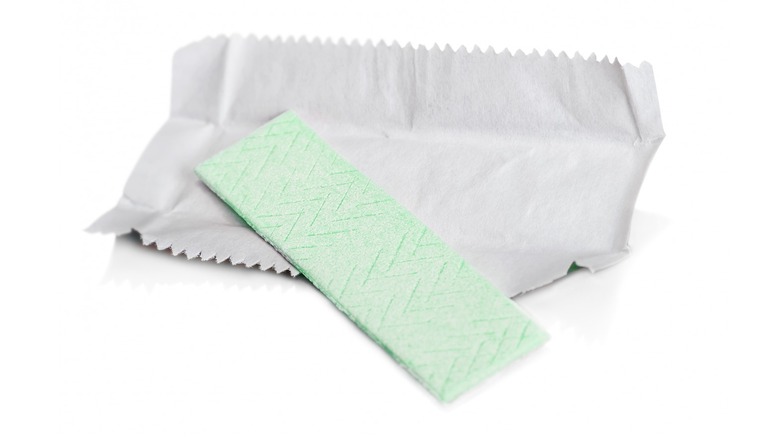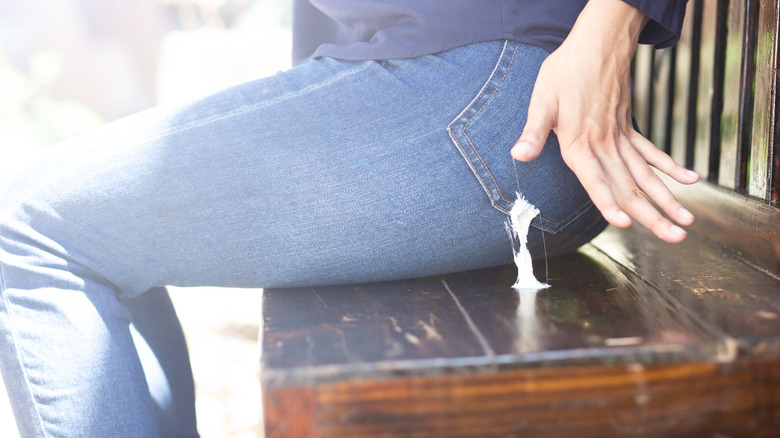Millions Of People Can't Buy Chewing Gum In Singapore
We take it for granted in America that we can buy chewing gum pretty much anywhere. It's right there in our sightlines at supermarkets, retailers, convenience stores, and pharmacies to trigger a last-second impulse buy. However, the nearly six million residents living in the city-state of Singapore have to turn elsewhere for their breath-freshening or bubble-blowing indulgence.
That's because chewing gum has been banned in Singapore since 1992. The impetus for the gum prohibition was twofold: Some mischievous pranksters were sticking it on the sensors of train doors to jam them up, which led to service delays, and chewing gum litter had become a glaring problem in public spaces, costing the government $150,000 a year to address the gum-ravaged walls and floors. Violation of the ban can result in a fine or, potentially, prison time. If the law sounds a bit draconian, it's actually kind of the norm in Singapore, which strictly enforces cleanliness and is notorious for cracking down harshly on illicit or improper behavior.
Cleaning up the place
The chewing gum ban was part of the policies implemented under the country's first prime minister, Lee Kuan Yew, who came to power in 1965. Initially, in the 1980s, he merely banned chewing gum product ads, but the littering and vandalism problems persisted. He eventually took the next step. In addition to the ban on chewing gum, which drew the most international media attention, there are also regulations in Singapore outlawing litter, graffiti, and spitting. Yew's goal was to make Singapore one of the cleanest, most efficiently run countries in the world, and all those unsightly wads of Big Red and Hubba Bubba plastered to the floors of cinemas and stuck to the benches of public parks were perceived as obstacles to progress, metaphorically "gumming" up the works or, as in the case of the transit system, literally preventing the trains from running on time.
In 2004, the chewing gum ban was modified as part of the U.S.-Singapore Free Trade Agreement to allow gums with "therapeutic value," including nicotine gum and sugar-free gum. However, the fines for discarding spent gum remain firmly in place. So the next time you pop that piece of Juicy Fruit in your mouth, be thankful that you not only have the right to chew it but can also stick the finished product under your desk without fear of serious repercussions. Though just because you can do something doesn't mean you should.

